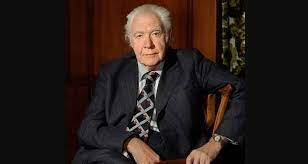
Economics Classical Definition by Lionel Robbin
Robbins’ Scarcity Definition:
The most widely used definition of economics was provided by Lord Robbins in his book “An Essay on the Nature and Significance of Economic Science” published in 1932. Robbins contends that neither human welfare nor wealth should be regarded as the subject of economics. “Economics is the science which investigates human behaviour as a connection between aims and scarce means which have alternative uses,” is how he defines it.
These statements can be developed from this definition:
(i) Human desires are limitless; they expand and become necessities from luxury items. There are endless desires. There wouldn’t have been any need to study economics if there had been an abundance of food, money to invest in businesses, and time. There wouldn’t have been any human activity if there were no needs. People in the distant past had desires. Today’s population also has desires. There is no end to their desires for change.
(ii) In comparison to their needs, there aren’t enough resources or methods to meet wants. There wouldn’t have been any economic issues if resources had been abundant. Therefore, a society’s primary economic issue is resource scarcity. Resource scarcity exists in all societies, including wealthy ones. Numerous “choice” issues arise as a result of resource scarcity.
(iii) Since prehistoric times, there has been a persistent attempt made to satiate human needs using the most limited resources, even when these resources have other uses. Compared to demand, land is scarce. However, this land might also be used for other purposes.
A certain piece of land may be utilised to either grow jute or make steel. The nation will have to forgo the manufacturing of jute if it is utilised to make steel. Therefore, resources must be distributed such that the urgent needs are met. As a result, the problem of choice is caused by the problem of resource scarcity. It will be up to society to choose which desires should be met right away and which ones should be put off for the time being. This is an economy’s decision dilemma. In any economy, scarcity and choice go hand in hand: It may be found in the isolated one-man community of Robinson Crusoe, the patriarchal tribe of Central Africa, feudal mediaeval Europe, capitalist contemporary America, and communist Russia. Given this, it is stated that the study of scarcity and the issues it causes is at the heart of economics. Therefore, opportunity cost and optimization are at the heart of economics. The field of economics has expanded in scope thanks to this notion of scarcity. Robbins turned economics into a positive science by putting the issue of value judgement aside. Robbins drew economics closer to science by identifying its fundamental issues—the issues of scarcity and choice. It makes sense why so many individuals have joined the Robbins camp in response to this definition. Paul Samuelson, an American who won the 1970 Nobel Prize in Economics, defines economics as “the study of how men and society choose, with or without the use of money, to employ scarce productive resources that could have alternative uses, to produce various commodities over time, and distribute them for consumption, now and in the near future, among various people and groups in society.”
Criticisms:
This does not imply that Robbins’ concept of scarcity is faultless.
On the following grounds, his definition could be criticised:
- Robbins purposefully minimised the significance of economics as a social science in an effort to move it to the rank of a positive science. Economics must research social interactions since it is a social science. His definition overemphasises “individual” decision-making. In the end, the scarcity problem is more of a society issue than a personal one. Social choices are a result of social issues. Robbins was unable to adequately explain social issues using social choice.
- Without reference to people, Robbins contends that resource scarcity is the foundation of all economic issues. Robbins made a serious mistake, leaving the issue of human welfare aside.
- Robbins made economics impartial with regard to goals. But economists are unable to be impartial in this situation. They must impose regulations and assign moral judgements to what is right and wrong for the society. Therefore, economics should make both affirmative and normative claims.
- Robbins reduced economics to a simple kind of microeconomic theory or price theory. However, Robbins had disregarded other crucial economic factors including the banking system, taxation system, national income and employment, etc.
Conclusion:
Political economy is a burgeoning field of study that will never have definite boundaries. To put it another way, the definition would have to be pliable. Many new fields of economics are being investigated as a result of contemporary study.
Because of this, the debate over the definition of economics still exists and will do so in the future. A succinct, logical definition is exceedingly challenging to articulate. There are seven viewpoints wherever there are six economists, as Mrs. Barbara Wotton said in this regard.
Despite this, Cairncross’ description of economics—”a social science exploring how individuals seek to adjust scarcity to their demands and how these attempts interact through exchange”—might be useful for our purposes. Prof. A. C. Cairncross has given economics a new constraint by equating “exchange” and “scarcity.”
The basis of all economic issues, scarcity, has already been beautifully addressed by Robbins, therefore this concept cannot claim originality.
Robbinsian definition is more common because of this:
Economics is the study of making choice. Modern economics is the study of rational decision-making in scarce resources.